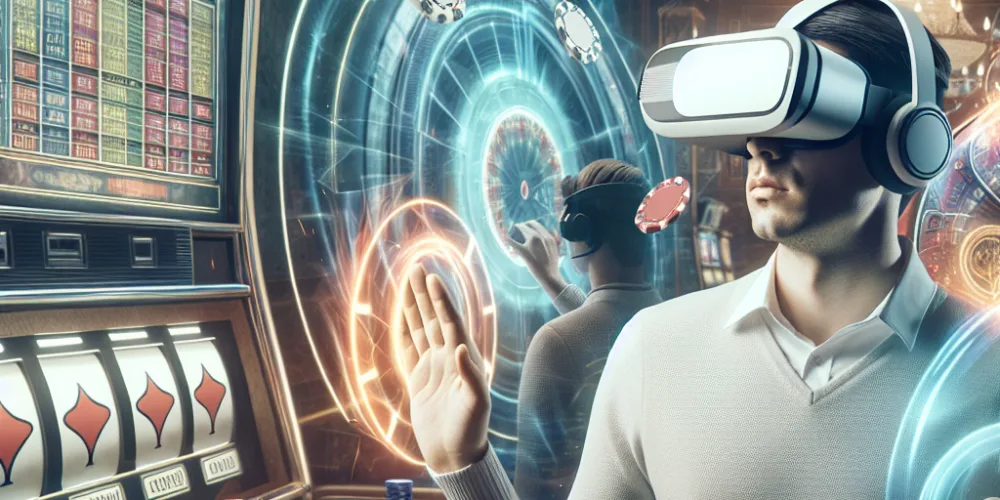In recent years, virtual reality (VR) technology has started to reshape various industries, and the casino sector is no exception. Now, with the emergence of VR slots, the traditional slot gaming experience is undergoing a revolutionary transformation, inviting players into immersive environments that were once the stuff of science fiction. This new trend not only enhances user engagement but also brings forth a novel challenge to traditional gaming paradigms.
The Evolution of Slot Machines with VR Technology
A New Way to Spin the Reels
VR slots offer a distinct departure from classic online slot games by providing a fully immersive 3D environment. Players wear VR headsets to experience a digital casino room where they can interact with machines and even engage with other players. This technology makes the graphical content more vivid and interactive, which significantly enhances player immersion and retention.
Technical Innovations Driving Adoption
The VR slots are powered by advanced gaming software and hardware, integrating seamless motion capture systems that react to the player’s movements. This setup includes detailed, high-resolution visuals and spatial sound effects, creating a compelling real-world casino atmosphere. The technical requirements for VR slots, while still substantial, are becoming more accessible, thanks to broader advancements in VR technology.
The Market Impact of VR Slots
Increasing Player Engagement
Casinos adopting VR slots have noted a marked increase in user engagement. The immersive nature of these games makes them more attractive and exciting to tech-savvy players looking for novel gaming experiences. Additionally, the interactive component of VR allows players to feel more involved and in control of their gaming outcomes, which is a significant departure from the passive engagement of traditional slot machines.
Attracting a New Demographic
VR slots are drawing in a younger audience, including millennials and Gen Z players, who seek dynamic gaming experiences that leverage cutting-edge technology. This is pivotal for the casino industry, which has been keen on innovating ways to attract younger demographics amidst a sea of entertainment options vying for their attention.
Challenges and Future Prospects
Overcoming Initial Barriers
Despite their potential, the widespread adoption of VR slots faces several challenges. The initial setup costs for both players and casinos are significant, given the expensive nature of VR equipment and the need for powerful software solutions. Moreover, as VR technology continues to evolve, ongoing updates and maintenance could pose additional challenges.
Regulatory and Security Considerations
As with any online gambling platform, VR casinos must navigate complex regulatory landscapes. Ensuring the security and fairness of VR slots is paramount to maintaining player trust and integrity in gaming operations. This includes safeguarding personal data and providing secure payment avenues within the VR environment.
Final Thoughts
VR slots represent a bold step forward in the evolution of casino gaming, reflecting how technology can redefine industry standards and player expectations. As VR technology becomes more refined and accessible, it could very well set a new benchmark for interactive gaming, transforming slot machines from the simple pull-and-spin affairs to multi-sensory, engaging gaming experiences. The future of VR in casinos holds promising potential for growth and could very well revolutionize gambling as we know it.



